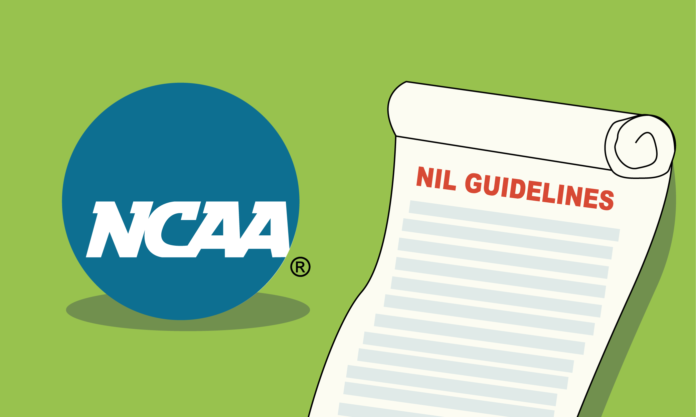New NIL guidelines lay groundwork for the future of college athletics
By KATHERIN RAYGOZA — sports@theaggie.org
The question whether college athletes should get paid is often brought up and is constantly enduring changes in the legislature, especially for future athletes. Name, image and likeness (NIL), the elements comprising “right of publicity,” is the only thing able to answer this question.
Part of the debate includes that the National Collegiate Athletic Association (NCAA) generates over $1 billion annually from athletics. The other part of the debate is that college athletes are considered amateurs and paying them would mean they have to be considered professionals.
“One of the NCAA’s greatest obligations to players,” writes Erik Cilburn, a writer from Insight Into Diversity. “Especially those who come from communities of color and low-income households, should be ensuring they are prepared for a future that may not include a lucrative professional sports career.”
Federal legislation has allowed NCAA Division I student athletes to receive pay by their NIL. That includes receiving endorsement deals, using social media to profit from their sport and they can now use their signatures on memorabilia for profit.
“With the variety of state laws adopted across the country, we will continue to work with Congress to develop a solution that will provide clarity on a national level,” said NCAA President Mark Emmert in a statement. “The current environment — both legal and legislative — prevents us from providing a more permanent solution and the level of detail student-athletes deserve.”
In the past, the NCAA prohibited athletes from receiving any sort of income from their sport by arguing that it would change the sport and that it would make fans less likely to watch or buy tickets. Fans who are college sport enthusiasts support NIL, and 63% of them said that NIL should continue on in the future.
“I’m fired up,” said P.J Fleck, head coach for the Minnesota Golden Gophers football team. “I’m fired up about name, image, and likeness. I think it’s tremendous. Our location, the Twin City area, the three and a half million people we have in our city, the 18 Fortune 500 companies, this isn’t a small, little college town. We have businesses galore and now have the ability for our players to benefit off their name with all of these companies.”
Since athletes can get profit from personalities and identity, this means that they can benefit financially by “providing services for their pay.” This can be seen in the form of being paid millions of dollars to promote a company or get a few hundred dollars from starting a YouTube channel or helping run a summer camp.
“Before the NIL floodgates opened in 2021,” said Alex Kirshner, a writer from Global States Matter. “Plenty of people around college sports claimed that compensating athletes would distract them, overwhelm them, or make it harder for them to focus on competition and schooling. In the months since NIL deals were allowed by the NCAA, athletes have instead found that the new rules are not only often lucrative but freeing.”
Universities and colleges benefit financially from these athletes, especially basketball and football players. While these student athletes work hard — not only in their sport, but also are full time students. These players win championships for their schools, and the schools are profiting from the athletes. Championships bring in revenue such as championship merchandise and the student athletes don’t receive any percentages from the profits.
An example of this is Texas University running back Bijan Robinson who after returning from an injury in April 2022, signed his sixth NIL deal with a Texas Lamborghini dealership a month later. He announced his partnership on Instagram.
The biggest downside about NIL is that international student athletes cannot receive any sort of payment in the U.S. and more than 20,000 NCAA athletes are left out. Visas that are provided to students-athletes only allow limited employment, whether that is on or off campus work. If these rules are broken serious consequences can occur such as being removed from the team, deportation and unable to renew a visa.
Canadian hammer thrower Camryn Rogers, who attended UC Berkeley, is a supporter of loosening endorsement plans for athletes. But a UC Berkeley compliance officer warned international athletes they could possibly be deported.
“That word hit me very, very hard,” Rogers said. “To see it come to fruition is so exciting, but at the end of the day for international student-athletes, it’s like it never happened.”
There is no clear prediction what will happen with the name, image and likeness of the athletes in the future. But with several opposing viewpoints on NIL, it will continue to be one of the most talked about topics of this next season.
Written by: Katherin Raygoza — sports@theaggie.org








